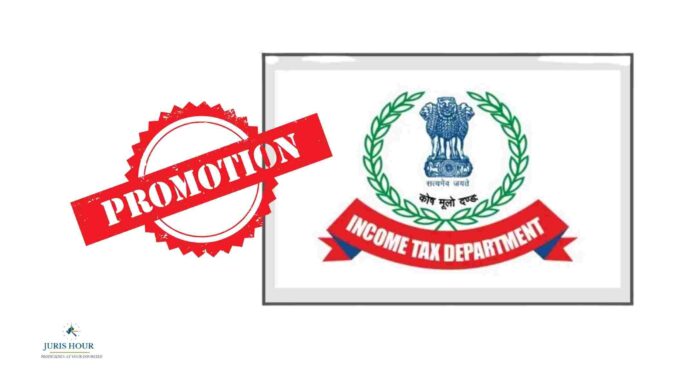In a rare move breaking the long-standing convention in civil services promotions, the Modi government has approved the elevation of 20 officers from the 2001 batch of the Indian Revenue Service (Income Tax) to the prestigious rank of Principal Commissioner of Income Tax (Pr. CIT). The post carries Pay Level 15 in the Central Pay Matrix, with a salary band of ₹1,82,200 – ₹2,24,100.
The 20 IRS (IT) officers of the 2001 batch promoted to the Principal Commissioner rank are:
- Sanjay Dhariwal
- Dharam Veer Singh
- Sujit Kumar
- Monika Dhami
- Neelam Shukla
- Satyasai Rath
- P. Praveen Siddharth
- Susan Thomas
- A.S. Kumbhar
- Manish Sareen
- Dr. Sanjay Kumar Lal
- Prakash Dubey
- Vijay Kumar Jaiswal
- Vijay Babu Vasanta
- Pradeep Kumar Meel
- Rajib Jain
- R. Clement Ramesh Kumar
- Deshmukh S. Vishwas Rao
- K. Meghnath Chowhan
- Mudavathu N. Murthy Naik
What makes the development significant is that the promotions of these IRS officers have been cleared even before the empanelment of 2001 batch Indian Administrative Service (IAS) officers to the equivalent rank of Additional Secretary — a sequence traditionally never breached.
Conventionally, officers from the IAS are the first to be empanelled at senior administrative levels, with officers from other Group A services following thereafter. In fact, as recently as March 2025, the Centre had empanelled 15 IAS officers from the 2000 batch as Additional Secretaries, followed by one more in June 2025. The empanelment of 2001 batch IAS officers at this level has not yet even begun, making the IRS elevation all the more striking.
According to senior officials, the move required intervention at the highest levels of government, as the promotion file had been pending clearance across multiple departments for several months. The decision to expedite the process is seen as both unusual and precedent-setting.
Sources indicated that urgency may have been added by reports that one officer from the 2001 batch was considering voluntary retirement (VRS) in order to contest elections. The early clearance, therefore, could also be aimed at ensuring smooth promotions within the cadre before the officer’s exit.
Read More: How To File Appeal In GSTAT e-Filing Portal? Step-By-Step Guide

